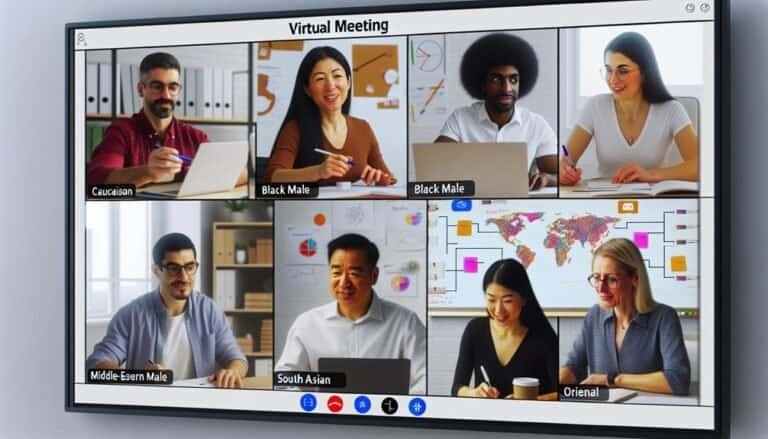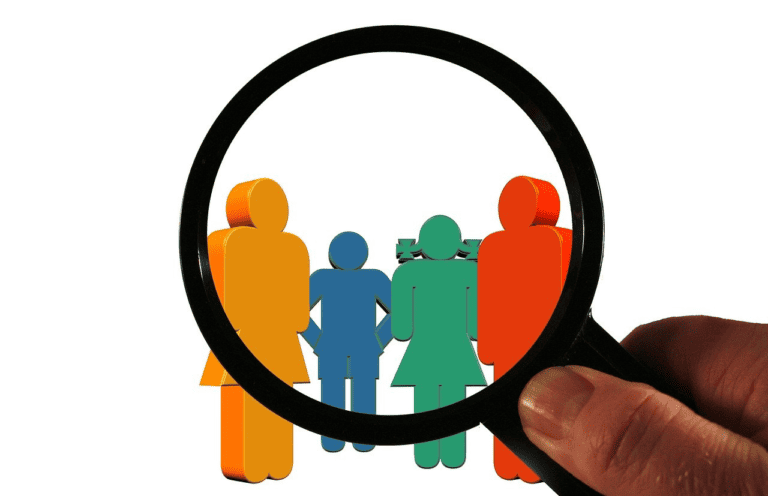From Acquired Neurodiversity to Personal Growth
The journey from acquired neurodiversity to personal growth is a complex and fascinating one that offers profound insights into the human experience.
As individuals navigate the unique challenges and opportunities that come with acquired neurodiversity, they are presented with a transformative opportunity for self-discovery and personal development.
By embracing these differences, individuals can unlock their full potential and cultivate a deeper understanding of themselves and the world around them.
This journey is not without its obstacles, but it is a journey worth embarking upon for those seeking to harness the power of neurodiversity for their own personal growth and fulfillment.
Key Takeaways
- Acquired neurodiversity refers to changes in cognitive functioning or behavior due to injury, illness, or external factors.
- Adaptation to acquired neurodiversity involves psychological, emotional, and social factors.
- Embracing neurodiversity leads to personal growth and fosters a more inclusive and innovative society.
- Strategies for personal growth include finding mentors and role models, participating in community events, celebrating achievements, setting new goals, and embracing ongoing development.
Understanding Acquired Neurodiversity
Acquired neurodiversity refers to the changes in cognitive functioning or behavior that occur as a result of injury, illness, or other external factors, prompting an individual to adapt to a new neurocognitive profile. Understanding adaptation to acquired neurodiversity is crucial in recognizing the cognitive evolution that individuals undergo.
This adaptation involves a complex interplay of psychological, emotional, and social factors as individuals strive to make sense of their altered cognitive functioning. It requires a deep understanding of the challenges and adjustments faced by individuals as they navigate through this transformation.
Cognitive evolution in the context of acquired neurodiversity involves a profound reshaping of one's cognitive processes and behavioral patterns. This evolution demands a comprehensive understanding of the unique ways in which individuals adapt to their changed neurocognitive profile. It is essential to recognize that this adaptation is a highly individualized process, influenced by various personal and environmental factors.
Navigating Challenges and Opportunities
The process of adapting to acquired neurodiversity presents individuals with a unique set of challenges and opportunities that require a deep understanding of the complex interplay between psychological, emotional, and social factors. Navigating obstacles and seizing opportunities are crucial aspects of this journey. It involves overcoming barriers while harnessing newfound strengths and perspectives. Below is a table that outlines some common challenges and corresponding opportunities that individuals may encounter as they adapt to acquired neurodiversity:
| Navigating Obstacles | Seizing Opportunities |
|---|---|
| Feelings of isolation and alienation | Building a supportive community of like-minded individuals |
| Difficulty in managing sensory sensitivities | Developing coping strategies and advocating for sensory-friendly environments |
| Struggling with changes in routine and structure | Embracing flexibility and adaptability, leading to enhanced problem-solving skills |
It's essential to recognize that navigating these challenges and seizing opportunities are interconnected. By addressing obstacles, individuals can unlock their potential for personal growth and development. The process is not without its difficulties, but it offers the prospect of profound self-discovery and empowerment.
Embracing Differences for Personal Development
Embracing differences is a crucial aspect of personal development and growth. This includes neurodiversity, which refers to the range of neurological differences in individuals. By recognizing and valuing the unique perspectives and strengths that individuals with neurodiverse traits bring, we open ourselves up to new ways of thinking and problem-solving. This can lead to personal growth as we learn from and appreciate different approaches. Additionally, embracing neurodiversity contributes to a more inclusive and innovative society. When we include and empower individuals with diverse neurological traits, we create a society that is more accepting, understanding, and open to new ideas. Ultimately, embracing neurodiversity benefits everyone by fostering personal growth and creating a more inclusive and innovative society.
Embracing Neurodiversity for Growth
Understanding and embracing neurodiversity can lead to personal growth and a deeper appreciation for the unique strengths and perspectives of individuals with diverse neurological profiles.
Empathy plays a crucial role in this process, as it enables individuals to understand and connect with others who may experience the world differently.
Embracing neurodiversity also involves self-acceptance, acknowledging one's own strengths and limitations while recognizing and valuing those of others.
It fosters resilience by promoting an inclusive environment where all individuals are supported and empowered to thrive.
Furthermore, embracing neurodiversity encourages a growth mindset, emphasizing the potential for learning and development in all individuals.
Personal Development Through Differences
Developing personal growth through embracing differences involves recognizing the unique perspectives and strengths that individuals with diverse backgrounds and neurotypes bring to the table. Embracing uniqueness allows for the cultivation of a more inclusive and supportive environment, fostering resilience in individuals and teams. This approach opens up opportunities for personal development and growth that may not have been possible in a more homogenous setting.
Here are key ways to embrace differences for personal development:
- Encouraging open dialogue and understanding
- Leveraging diverse perspectives for innovative problem-solving
- Building empathy and cultural competence
- Challenging traditional norms and assumptions
- Cultivating a sense of belonging and acceptance
Tools and Strategies for Self-Discovery
In the pursuit of self-discovery, individuals often find it beneficial to explore a variety of tools and strategies that can aid in understanding themselves more deeply and navigating personal growth. Two essential tools for self-discovery are self-reflection and mindfulness practice. Self-reflection involves taking the time to contemplate one's thoughts, feelings, and experiences, allowing individuals to gain insight into their motivations and behaviors. It can be facilitated through journaling, meditation, or simply setting aside dedicated time for introspection. On the other hand, mindfulness practice encourages individuals to be present in the moment, cultivating awareness of their thoughts and emotions without judgment. This can be achieved through mindfulness meditation, deep breathing exercises, or engaging in activities with full attention.
| Tools and Strategies for Self-Discovery | Description | Benefits |
|---|---|---|
| Self-Reflection | Contemplating thoughts, feelings, and experiences | Gain insight into motivations and behaviors |
| Mindfulness Practice | Cultivating awareness of thoughts and emotions | Promotes emotional regulation and stress reduction |
Building Support Networks and Communities
After gaining insight into their motivations and behaviors through self-reflection and mindfulness practice, individuals can further enhance their personal growth by building support networks and communities that foster understanding and acceptance of their neurodiverse experiences.
Building connections and creating communities is essential for individuals with acquired neurodiversity to thrive. By establishing support systems, individuals can find a sense of belonging and validation in their unique journey. These communities play a crucial role in fostering inclusivity and promoting a sense of acceptance and understanding.
Here are some key ways individuals can build their support networks and communities:
- Engage in local or online support groups specifically tailored to neurodiverse individuals.
- Seek out mentors or role models who have similar neurodiverse experiences and can offer guidance and support.
- Participate in community events and activities that promote awareness and understanding of neurodiversity.
- Utilize social media platforms to connect with like-minded individuals and share experiences and resources.
- Advocate for inclusive practices within workplaces, educational institutions, and other community settings.
Celebrating Success and Continued Growth
As individuals with acquired neurodiversity continue to navigate their personal growth journey, it is important to take the time to reflect on their achievements, no matter how big or small.
Setting new goals and embracing ongoing development are essential aspects of celebrating success and continued growth.
Reflecting on Achievements
Reflecting on achievements is an essential practice for recognizing personal growth and celebrating success in one's neurodiverse journey. Celebrating progress and cultivating resilience are crucial aspects of this reflection. It allows individuals to acknowledge their accomplishments and the progress they have made, fostering a sense of pride and motivation to continue moving forward.
Additionally, reflecting on achievements provides an opportunity to assess the strategies and support systems that have contributed to success, enabling individuals to replicate effective methods in future endeavors. It also helps in building self-confidence and a positive self-image, essential for navigating the challenges associated with neurodiversity.
Moreover, reflecting on achievements facilitates a deeper understanding of personal strengths and capabilities, empowering individuals to set new goals and pursue continued growth.
- Acknowledge personal growth
- Foster a sense of pride
- Assess effective strategies and support systems
- Build self-confidence
- Empower through understanding of personal strengths
Setting New Goals
Upon reaching significant milestones, individuals in their neurodiverse journey are prompted to set new goals, marking the continuation of their celebration of success and pursuit of continued growth.
Embracing new beginnings with a fresh perspective, setting new goals becomes an essential part of the personal growth process. It provides an opportunity to channel the momentum gained from past achievements into new endeavors, fostering a sense of purpose and direction.
Setting specific, measurable, achievable, relevant, and time-bound (SMART) goals can help individuals navigate their neurodiverse journey with clarity and determination. These goals serve as a roadmap for the future, guiding individuals towards further personal and professional development.
Embracing Ongoing Development
In the pursuit of ongoing personal development, individuals navigating their neurodiverse journey often find themselves at a pivotal juncture, where a thoughtful celebration of past successes seamlessly intertwines with the anticipation of continued growth.
Embracing ongoing development involves the recognition of achievements while maintaining a proactive approach to self-improvement strategies. This phase is marked by a deep sense of reflection and a forward-looking mindset, creating a harmonious balance between acknowledging progress and fostering new advancements.
To effectively embrace ongoing development, individuals can consider the following strategies:
- Cultivating a growth mindset
- Setting flexible and adaptive goals
- Engaging in continuous learning and skill development
- Seeking mentorship and support networks
- Embracing resilience and adaptability
Embracing ongoing development is an empowering journey that celebrates past accomplishments while fueling the momentum for continuous personal growth.
Conclusion
In conclusion, the journey from acquired neurodiversity to personal growth is one filled with challenges and opportunities.
By embracing differences, utilizing tools and strategies for self-discovery, and building support networks and communities, individuals can celebrate success and continue to grow.
Just as a caterpillar transforms into a butterfly, so too can individuals with acquired neurodiversity undergo a beautiful metamorphosis, emerging stronger and more resilient than ever before.






